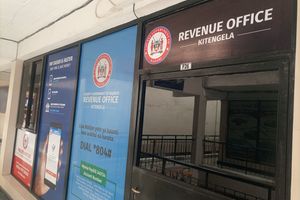
Many Kenyans still rely on cash transactions while some older people do not know how to use mobile money services such as M-Pesa, making it discriminatory to deny them access to services or buying goods in cash.
Business entities and individuals could face fines of up to Sh100,000 if MPs pass a Bill currently before the House that seeks to make payment of cash for goods and services a mandatory option for those who do not wish to use cashless methods.
The Central Bank of Kenya (Amendment) Bill, 2025 seeks to amend Central Bank Act, Cap 291 to ensure that cash as a form of payment for goods and services remains widely accepted, including when accessing government services.
“The Bill mandates that businesses selling goods and services in person must accept cash payments for transactions of up to Sh100,000. Additionally, it prohibits businesses from charging higher prices to customers who choose to pay with cash, thereby promoting fairness in payment options,” reads the Bill.
According to the Bill sponsored by Suba South MP Caroli Omondi, majority of Kenyans still rely on cash transactions while some older people do not know how to use mobile money services such as M-Pesa, making it discriminatory to deny them access to services or buying goods in cash.
In addition, he says there are still people who do not have access to smart devices or the internet needed to make cashless payments.
“By ensuring that businesses cannot refuse cash or impose unfair pricing policies, the Bill seeks to protect consumer rights and eliminate discrimination based on payment methods. Furthermore, providing clear legal guidelines on the acceptance of cash payments, the Bill enhances legal certainty and encourages compliance among businesses,” reads the Bill.
The Bill, however, says the cash payment option will only be mandatory in sales made in the physical location.
“A person who contravenes this section shall, in addition to civil damages that may be pursued by an aggrieved party, be liable upon conviction to a fine not exceeding one hundred thousand shillings,” reads the Bill.
The proposed law provides exceptions where accepting cash as a form of payment can be hampered due to various reasons such as system failure.
“Subsection 1 on payment of cash shall not apply to a person if the person is unable to accept cash because of a sale system failure that temporarily prevents the processing of cash payments or insufficiency of cash on hand to give as change,” reads the Bill.
The Bill, which is set to be introduced for the first reading, comes at a time when signs such as “we are cashless “or “we only accept cards” are prominently displayed at points of sale in some business premises.
Although the use of electronic money transfer or use of credit and debit cards have become popular because of their convenience, the MP argues that such forms of payments cannot pass as legal tender.
The MP said that while the Covid-19 pandemic made handling cash a medical risk, he cited the widespread Information Technology (IT) systems outage of July 2024 in the United States of America as an example of the vulnerability of completely moving to non-cash based payment systems.
“Suddenly and without warning the exchange of goods and services stopped with the IT outage. Buyers were unable to effect cashless payments. Everyone was in need of immediate cash to make payments. As a matter of good risk management, the option for cash payments should at all times be available to deal with instances of widespread IT outages due to system failures, deliberate sabotage or natural disasters,” Mr Omondi said.
According to him, by law, the presentation of legal tender in settlement of a financial obligation satisfies that obligation even if the recipient declines to accept the legal tender.
“Legal tender represents the sovereign collective agreement amongst all citizens as to how they will pay for the exchange of goods and services and hence its constitutional underpinning,” said Mr Omondi.
He also defended the cash payment mode, saying it offers the sellers the exact value of their goods or services without deductions for transaction charges, fees and taxes whose real benefits accrue mainly to government agencies and service providers.
The MP also argues that a large segment of society cannot access credit or debit cards as they are unbanked while the banked population also fail credit checks or are suffering financial hardship hence are locked out of all cashless payment systems due to bad debt.
Globally, Norway recently amended its Financial Contract Act to make the option of cash payments mandatory.
Advocates of cashless transactions point out their advantages such as elimination of physical risks and handling logistics essential to managing cash. They also point out that cashless payments greatly improve revenues by reducing pilferages.
Tax agencies list better record keeping and improved revenue collection as the advantages of cashless payments.
On the security front, security agencies argue that cashless transactions improve surveillance and traceability of financial transactions in the fight against crime.









